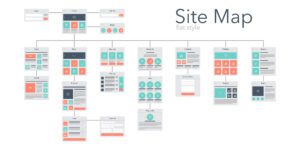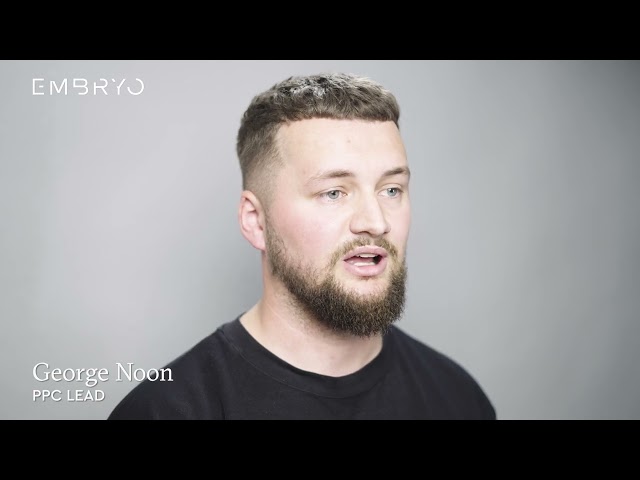If you’ve read as many PPC and SEO blogs as we have, you might have realised by now that there’s quite often an overlap between these two terms. While PPC is to do with creating an effective ad campaign in order to generate paid traffic, and SEO is more about optimising your site’s content in order to appear higher in rankings, both are about establishing your brand’s visibility in order to achieve a higher conversion rate.
With that in mind, combining these two key marketing strategies can be a highly effective way to ensure all-round success in terms of company and client-base growth, as well as all important customer satisfaction. SEO isn’t just useful for crafting compelling PPC adverts, paid advertising strategies also have a lot to offer search engine optimisation to give you the best chances of marketing success.
You can make your customer’s decision to choose you an easy one before they even make it to your “About Us” page with an effective PPC strategy to entice them to the SEO content that will make them stay.
Keywords
Both SEO and PPC rely heavily on targeting relevant keywords. This is because keywords can make or break your campaign and have a drastic impact on your rankings.
Relatively recently Google has increased privacy measures. This development has seen the potential removal of third-party cookies as well as the move to secure search in 2013.
Although these changes are in response to customer concern about the security of their online data, it does mean it has become more difficult for marketers to track which keywords generated organic conversations within Google Analytics. As a result, defining a keyword strategy based on the phrases actually used by your target audience in order to tailor your content to them is facing more challenges than it had previously.
However, PPC campaigns often use a Quality score to monitor which keywords generate the highest traffic and lead to the highest conversion rates. Not only is it useful to apply these keywords to your SEO strategy, but paid search campaigns can also provide insight into keywords that may be unprofitable in terms of bidding, but which are still relevant enough to rank for organic search.
While these quality scores are somewhat affected by CTR, poor user experience can also be a contributing factor towards low quality scores. If your landing page isn’t up to scratch, it’s likely your organic rankings will be suffering from the same things that are acting as obstacles in the buyer process.
Landing pages

Landing pages are extremely useful for PPC as they provide a concrete next step within your site’s network, as well as a place for customers to land once they’ve clicked on your ads. Your landing page is important as it targets the user’s experience in the next step of the buying process.
Through PPC campaign data, you can see which landing pages on your site have the highest conversion rates. Not only does this provide insight into which content on your website is compelling customers to buy, but also influences your marketing decisions going forward. By identifying which content is going well, you can prioritise that copy for targeting specific keywords.
Ad testing
Split testing, otherwise known as A/B testing, is the process of comparing two different versions of a web page (the original and a variation on the original), to determine which performs better. This performance is measured in terms of comparative conversion rates.
By applying the data collected from your split-tested ads to your SEO strategy, you can gain a sense of the kinds of copy that entices potential customers to click on your adverts. Once you know what customers find appealing, you can create content with this in mind, including optimising the meta descriptions of each of your site’s pages.
Account structure

In terms of the wider site architecture of your company’s website, an effective PPC campaign is what is most likely to draw consumers to your website, but the SEO is what will make them stay. PPC campaigns are a great way of producing relevant content on third-party platforms to entice your target customers.
In order to understand how the most high-value conversions can help you identify the areas of your business to focus your SEO efforts on, it’s imperative that you carry out an analysis of your ad campaign’s overall budget. You can do this by comparing your performance with your competitors’ and considering factors such as industry, location and ad network.
Display and remarketing
Remarketing ads is a great way to make sure that your ads remain relevant even though you might be offering the same great product or service and has proven to yield better conversion rates than traditional pay-per-click advertising at a lower cost. Think of it like fixing the roof rather than buying a whole new house.
When considering the most optimal placements for your ads, it’s important to build and maintain strong relationships, as well as to pay attention to user information. This allows you to tailor your PPC content to your target audience and create high-stand site content in accordance with what your customers are searching for.
SEO penalty saviour
Sometimes Google might remove your site from SERP listings or your ranking for keywords might drop dramatically. This is what’s known as a Google penalty and is often imposed if your site violates certain Google policies. You can check whether your site has been penalised by in your Google Search Central account.
One of the biggest culprits is backlinks. The only way to remove a link penalty is to remove the offending link. Once you’ve fixed your website in accordance with Google’s guidelines you can submit a reconsideration request to try and get your site relisted in Google’s SERP rankings.
In the unfortunate case that your site has received SEO penalties, you can retain brand reputation and potential customers through PPC strategy. This allows you to attract visitors from third-party platforms rather than through organic traffic.
However, even though we recommend targeting new keywords rather than trying to mimic your previous organic rankings, the cost per click of new keywords can be prohibitively expensive due to high demand amongst competing companies. In order to combat these expenses and keep your business afloat, it’s important to budget accordingly in order to optimise your ROAS.
Two strategies are better than one
Would you recommend pairing SEO and PPC?
“Undoubtedly yes, you cannot build a business solely from PPC as your in the hands of Google and CPC’s are increasing every year. PPC should be the cash blow benefit allowing you to invest in SEO and expand your business and build a stable platform. SEO can also be utilised to rank for incredibly high CPC terms, or other focus areas PPC is not. Its not SEO or PPC, the answer always is both.”
Even though PPC and SEO are important marketing strategies in their own right and deserve to be treated as such, together they can enhance your brand visibility and help you optimise content both on and off of your website. By calling on PPC to provide more in-depth data research or to target audiences that you can’t reach with organic strategies alone, the role of PPC is not to be underestimated in the world of SEO.
FAQs
Answered by Callum Leonard
Should I start PPC or SEO first in my digital marketing strategy?
Ideally, both need to be started at the same time. All marketing activity that is live and working together is going to help with overall performance. This covers the top, middle and bottom funnel of the user search journey. For websites which are not SEO optimised, they would need to be completed first so that PPC spend isn’t wasted on high bounce rates.
Should SEO and PPC metrics be analysed together for better analysis?
The two channels can work together amazingly for marketing performance. PPC can often pick up the slack for keywords which may have dropped organically in rankings. PPC however shouldn’t be seen as an instant fix, as for a good quality campaign you need conversion data gathering first.
Can PPC be used as a short-term fix before SEO can provide enough traffic?
PPC does work quicker than SEO, however we would always say that they should support others. PPC will only give quick, quality results if there is quality data and knowledgeable excerpts behind a campaign.
Is it wasteful to consistently invest in both SEO and PPC?
No, this isn’t a wasteful pair. They both work together and should be invested in as long as performance is consistently good.














